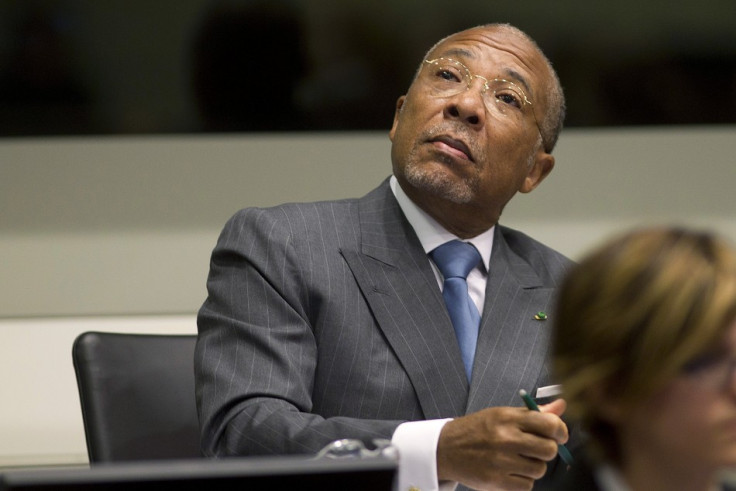Charles Taylor Blames ‘Western Conspiracy’ for His Downfall

Former Liberian President Charles Taylor stopped short of apologising for his role in the Sierra Leone civil war and instead chose to accuse prosecutors of paying and intimidating witnesses.
Taylor is due to be sentenced on 30 May, with prosecutors demanding an 80-year prison term.
Speaking in The Hague-based court, Taylor argued that the court "did not have the full contextual picture" of his case when he was found guilty on 11 counts of crimes against humanity last month and insisted that he had only sought to bring about stability.
The court heard arguments ahead of sentencing, with his defense team saying the 80-year term being demanded by prosecutors is "manifestly disproportionate and excessive".
"I express my sadness and sympathy for crimes suffered by individuals and families in Sierra Leone," Taylor said.
"What I did to bring peace to Sierra Leone was done with honour," he said. "I was convinced that unless there was peace in Sierra Leone, Liberia would not be able to move forward."
Insisting he had pushed for peace instead of war, Taylor added: "I pushed the peace process hard, contrary to how I have been portrayed in this court."
In a speech that lasted about 30 minutes, Taylor accused prosecutors of paying and intimidating witnesses, as well as that money had played a "corrupting, influential, significant and dominant role" in his trial.
"Witnesses were paid, coerced and, in many cases, threatened with prosecution if they did not give statements," the former Liberian president said.
"Families were rewarded with thousands of dollars to cover costs of children's school fees, transportation, food, clothing, medical bills and given cash allowances for protected and non-protected witnesses in a country where income is less than a dollar a day," he further claimed.
Delivering his statement from a witness box, Taylor also repeatedly blamed his predicament on the United States, comparing some of the crimes for which he was convicted to some that the United States committed during the Iraq War, CNN reported.
Taylor knew his argument would resonate in certain circles. Many international courts have been criticised for focusing primarily on African affairs, regardless of whether they are backed by the UN or stand alone like the International Criminal Court at The Hague.
A select group of African lawyers, jurists and diplomats met recently in Addis Abba, Ethiopia, to discuss the International Criminal Court and what strategy Africa should adopt to deal with it as a continent.
Warning other African leaders that they could be the next to be convicted, Taylor said: "I never stood a chance. Only time will tell how many other African heads of state will be destroyed."
According to prosecutors, given the extreme nature of the crimes that were committed, there was no reason for leniency in sentencing.
"The purposely cruel and savage crimes committed included public executions and amputations of civilians, the display of decapitated heads at checkpoints, the killing and public disembowelment of a civilian whose intestines were then stretched across the road to make a checkpoint, public rapes of women and girls, and people burned alive in their homes," prosecutor Brenda Hollis said at a pre-hearing brief.
Defense attorney Courtenay Griffiths argued for a sentence reflecting Taylor's indirect, rather that direct, involvement in the events that took place.
He said Taylor's conviction has been "trumpeted... as sending an unequivocal message to world leaders that holding office confers no immunity" from being prosecuted for war crimes.
The difference he said was that, while many Western countries have funded militias that have committed atrocities, no Western leader has ever been indicted by a war crimes tribunal.
"If you are a small, weak nation, you may be subject to the full force of international law, whereas if you run a powerful nation you have nothing to fear," Griffiths added.
© Copyright IBTimes 2025. All rights reserved.






















